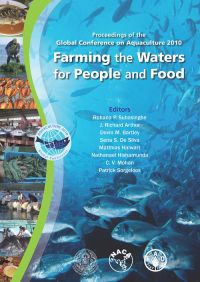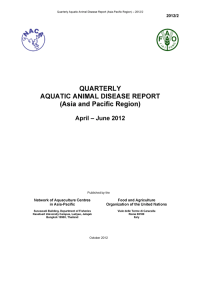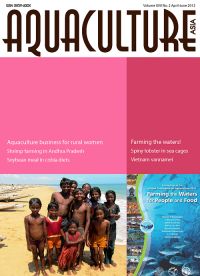Presentation on climate change vulnerability and adaptation in improved extensive shrimp farming systems in Vietnam.
For three years NACA worked with a consortium of partners on a project to strengthen the adaptive capacities of small-scale farmers to climate change. The aim of the “Aquaclimate” project, funded by the Norwegian Agency for Development Cooperation (NORAD), was to identify the likely medium-term impacts of climate change on important aquaculture systems and to develop adaptation strategies that will help farmers to cope with the changes.
The Global Conference on Aquaculture 2010 reviewed the present status and trends in aquaculture development, addressed emerging issues relevant to aquaculture development, assessed opportunities and challenges for future aquaculture development and built consensus on advancing aquaculture as a global, sustainable and competitive food production sector. This volume provides information on how aquaculture could be mobilized to alleviate global poverty and improve food and nutrition security in the coming decades.
In this issue:
Shrimp farming in Andhra Pradesh, India. Small indigenous freshwater fish species in village community ponds to ensure nutritional security of rural poor. Postlarvae culture and technical status of whiteleg shrimp Penaeus vannamei hatcheries, Vietnam. Jatropha meal as a promising plant protein source for aquaculture feeds. Use of soybean meal in cobia diets. Capture based aquaculture of spiny lobster Panulirus polyphagus in open sea cages. Institutional linkage helping rural women gain employment.


